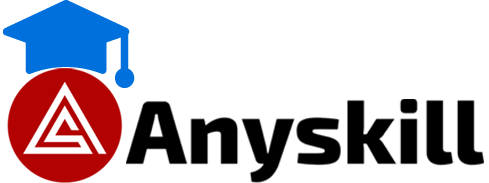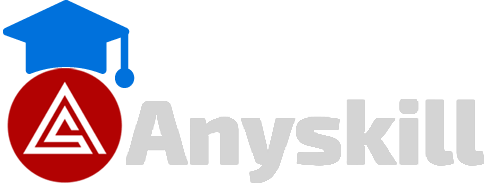Description
A makeup artist’s portfolio is a collection of photographs that show her best work. The images are used to help the makeup artist market herself to new clients
Description
A makeup artist’s portfolio is a collection of photographs that show her best work. The images are used to help the makeup artist market herself to new clients and get more work. Remember, if you look good, you will feel good, and if you feel good, you will look good. This field is one of the fastest growing fields. The demand for creative hairdressers, colorists, and makeup artists far exceeds supply.
Benefits of the course
- The specific knowledge and skills you will learn in a "Portfolio Makeup Course" may vary depending on the course content and curriculum, but typically, you can expect to gain the following:
- Understanding of Portfolio Diversification: You will learn how to create a diversified investment portfolio, which involves spreading your investments across different asset classes, such as stocks, bonds, mutual funds, real estate, and more. This helps reduce risk and optimize returns.
- Risk Management: You will learn about risk assessment and how to manage risks associated with different investments. This includes understanding factors that can affect your portfolio's performance and how to mitigate potential losses.
- Asset Allocation: You will understand the importance of asset allocation, which involves deciding how much of your portfolio should be invested in different asset classes based on your financial goals and risk tolerance.
- Investment Strategies: You will learn various investment strategies, such as long-term investing, short-term trading, and passive vs. active investment approaches. These strategies can help you align your portfolio with your financial objectives.
- Financial Analysis: You may acquire skills in financial analysis and evaluation of investment opportunities. This can include reading financial statements, analyzing market trends, and conducting fundamental and technical analysis.
- Portfolio Management Tools: You might learn how to use financial software, portfolio management tools, and investment platforms to monitor and adjust your portfolio.
- Goal Setting: You will set and define your financial goals and objectives, whether they are focused on retirement planning, wealth accumulation, risk reduction, or income generation.
- Tax Implications: Understanding the tax implications of different investments and how to minimize tax liability can also be a part of the course.
- Ethical and Legal Considerations: You may learn about the ethical and legal aspects of investment, including regulatory compliance and responsible investing.
- Real-World Applications: Courses often provide practical insights into managing your investments, making informed decisions, and adapting to changing market conditions.
- Remember that the specific content and depth of the course will depend on the institution or platform offering it. It's a good idea to review the course syllabus or description to get a more detailed understanding of what you will learn in a specific "Portfolio Makeup Course."
Topics for this course
Portfolio Makeup
Introduction / White Base01:45
Brown Countouring01:08
Eyebrows01:41
Eyeliner / Eyelashes02:04
Concealing02:27
HD Powder Base00:46
Blush On01:12
Applying Of Lipstick00:53
Finishing00:47
Makeup Spray00:30
Final Look01:20
Requirements
- The requirements and instructions for enrolling in and successfully completing a "Portfolio Makeup Course" will depend on the specific course and the institution or platform offering it. Here are some common requirements and general instructions you may encounter:
- Requirements:
- Prerequisites: Some courses may have prerequisites, such as a basic understanding of finance or economics. Ensure you meet these requirements before enrolling.
- Access to Technology: You'll need a computer or mobile device with internet access to participate in online courses. Make sure you have a reliable internet connection.
- Payment or Enrollment Fee: Many courses require payment or enrollment fees. Check the cost and payment options.
- Time Commitment: Understand the expected time commitment for the course, including the number of hours per week and the course duration.
- Language Proficiency: Ensure you have the required language proficiency if the course is not in your native language.
- Instructions:
- Enrollment: Register for the course through the institution or platform offering it. Follow the enrollment process, which typically includes creating an account and providing basic information.
- Payment: If the course has a fee, complete the payment process as instructed. Some courses offer free enrollment, while others may charge a fee.
- Orientation: Review any orientation or introductory materials provided by the course to familiarize yourself with the platform, navigation, and course structure.
- Course Materials: Access the course materials, including lectures, readings, quizzes, and assignments, as instructed by the course provider.
- Engagement: Actively engage with the course content, participate in discussions, and complete assignments and quizzes according to the provided schedule.
- Assessments: Prepare for and take any course assessments or exams as required. Follow the instructions for submission.
- Interaction: If the course includes discussion forums or live sessions, participate in these to enhance your learning and ask questions.
- Progress Tracking: Monitor your progress in the course and meet deadlines for assignments and assessments.
- Completion: Successfully complete the course as per the requirements. This may include achieving a passing grade, meeting participation criteria, and fulfilling any project or presentation requirements.
- Certification: If the course offers a certificate of completion, follow the instructions for claiming your certificate.
- Feedback: Provide feedback on the course and instructors, if requested, to help improve future offerings.
- Always review the specific requirements and instructions provided by the course provider to ensure a smooth and successful learning experience. These may vary from one course to another.
Target Audience
- Individual Investors: Anyone looking to take a more active role in managing their personal investments, such as stocks, bonds, mutual funds, real estate, or retirement accounts.
- Beginner Investors: Individuals who are new to investing and want to build a strong foundation in portfolio management.
- Intermediate Investors: Those who have some investment experience but want to improve their portfolio management skills and strategies.
- Self-Directed Investors: People who prefer to make their own investment decisions rather than relying on financial advisors.
- Finance and Business Students: Undergraduate or graduate students studying finance, economics, or related fields who want to gain practical knowledge in portfolio management.
- Working Professionals: Professionals in finance, banking, or related fields who want to enhance their skills in portfolio management or those who need to manage their own investments.
- Retirees and Pre-Retirees: Individuals planning for retirement who want to optimize their investment portfolio for income and security.
- Small Business Owners: Entrepreneurs and business owners interested in managing their company's investments or planning for their own financial future.
- Anyone Interested in Personal Finance: Anyone with an interest in personal finance, wealth building, and securing their financial future.
- Those Preparing for Financial Exams: Individuals preparing for financial certification exams (e.g., CFA, CFP) that include portfolio management as a subject.
- Financial Planners and Advisors: Professionals in the field of financial planning who want to expand their knowledge and skills in portfolio management.
- Those Seeking to Understand Investment Markets: Individuals who want a better understanding of how investment markets work and how to navigate them effectively.
- It's important to note that the specific course may be tailored to different levels of expertise, from beginner to advanced, so potential learners should consider their own knowledge and experience when choosing a course that best suits their needs.
Materials included
- video
Your Instructors
Anyskill
Administrator
Skills to Learn, Skills to Earn Any skill is a platform to learn and acquire skills which will enable you to either opt for a job or initiate your own startup.






